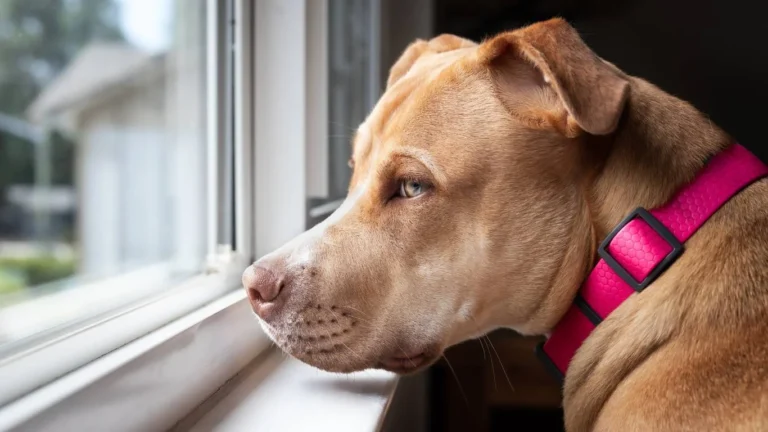How to treat a dog with indigestion safely at home
Understanding Dog Indigestion
When a dog seems out of sorts after eating, it can be worrying. Their appetite might shift, or they may appear uncomfortable. Indigestion—also called dyspepsia—is fairly common in dogs and usually mild, but it’s important to know when it might be something more.
Recognizing the signs early and responding gently can go a long way in helping your dog feel better. This guide offers a thoughtful approach, based on experience, veterinary best practices, and the bond we share with our dogs.
Signs and Symptoms
Indigestion in dogs doesn’t always look the same. Some dogs might show subtle signs, while others seem clearly distressed. Watching their behavior closely helps identify what’s going on.
- Loss of appetite
- Burping or gurgling stomach sounds
- Nausea (lip licking, drooling)
- Vomiting (especially undigested food)
- Diarrhea or soft stools
- Lethargy or restlessness after meals
- Passing gas more than usual
- Swollen or tight abdomen
Any of these signs may point to indigestion, particularly if they appear shortly after eating. However, chronic or severe symptoms should never be ignored.
Causes of Indigestion in Dogs
Dogs can have sensitive stomachs, just like people. Indigestion may be caused by a range of simple or more complex issues. Identifying the likely cause helps in choosing the right treatment.
- Eating too quickly
- Diet changes or table scraps
- Low-quality or spoiled food
- Food intolerances (e.g., dairy or grains)
- Overeating or portion control issues
- Stress or anxiety
- Underlying health conditions (such as gastritis or pancreatitis)
- Foreign objects swallowed
In many cases, indigestion stems from something temporary—like gobbling down dinner too fast. But sometimes, it’s a clue pointing to an issue that needs professional care.
When to Get Help
Mild cases often resolve with rest and a gentle diet. Still, it’s important to know when indigestion might mean something more serious. Early veterinary attention can prevent complications.
- Repeated vomiting or dry heaving
- Severe abdominal pain or bloating
- Bloody stool or vomit
- Refusal to eat for more than 24 hours
- Ongoing lethargy or weakness
- Signs of dehydration (dry gums, sunken eyes)
- History of chronic stomach problems
If any of these symptoms appear, or if your dog seems to worsen, reach out to a vet as soon as possible. Don’t wait. Some conditions like bloat (gastric torsion) can become dangerous quickly.
Treatment
Treating a dog with indigestion starts with understanding their comfort and needs. It often begins at home, especially when symptoms are mild. The goal is to soothe the digestive system and avoid further irritation.
Step-by-Step Care at Home
- Withhold food briefly: Skip one or two meals to give the stomach time to rest. Never withhold water unless advised by a vet.
- Provide bland food: Offer a small meal of boiled chicken and plain white rice. This diet is gentle and easy to digest.
- Smaller, more frequent meals: Feed little portions throughout the day to avoid overwhelming the stomach.
- Limit exercise after eating: Keep activity light to help the digestive process.
- Encourage hydration: Ensure your dog is drinking clean water. You can also offer unseasoned bone broth for hydration and comfort.
Natural Remedies (Used With Caution)
Some caregivers find mild success using natural aids. These should always be used cautiously and never as a substitute for medical care.
- Ginger: Known for soothing nausea, a small amount of fresh ginger (grated and boiled into tea) may help.
- Pumpkin puree: Plain, canned pumpkin—not pie filling—can help regulate digestion.
- Probiotics: These support gut health. Veterinary-formulated probiotics are best.
Always check with a vet before introducing new supplements, even natural ones. Dogs respond differently, and what’s safe for one might not be for another.
Veterinary Treatment
If your dog’s indigestion is ongoing or severe, your vet may suggest tests to rule out infections, parasites, or chronic diseases like IBD (inflammatory bowel disease). Depending on the cause, treatment may include:
- Antacids or acid reducers
- Antinausea medication
- Prescription diets for sensitive stomachs
- Hydration therapy if dehydrated
- Enzyme or probiotic support
- Further diagnostics, such as bloodwork or x-rays
In some cases, indigestion might be part of a larger health picture. Ongoing episodes should always be documented and discussed with your veterinarian.
Prevention Tips
Once your dog is feeling better, consider a few adjustments that can help prevent future episodes. A little consistency and awareness often go a long way.
- Feed consistent, high-quality meals
- Avoid table scraps and fatty treats
- Slow down eating with puzzle feeders or slow bowls
- Stick to a feeding schedule
- Limit exposure to stressful changes
- Keep toxic or non-food items out of reach
Dogs thrive on routine, and a stable diet helps the gut stay balanced. Keeping a journal of food and symptoms may also reveal patterns that guide long-term care.
Gently Moving Forward
Watching your dog struggle with stomach upset can be tough. But most cases of indigestion improve with time, care, and the right approach. The key is patience—and knowing when to ask for help.
Trust your instincts. You know your dog better than anyone. If something feels off, it’s always okay to call the vet and ask questions. You’re not overreacting—you’re being a loving advocate.
In the end, treating indigestion isn’t just about symptoms. It’s about offering comfort, consistency, and care—so your dog can feel safe and well again.





